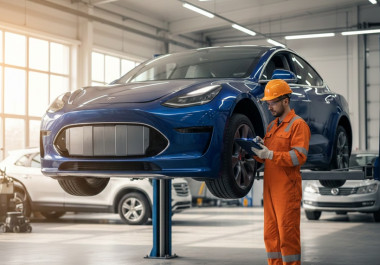If there is one thing I learned from years in the motor trade, it is this: a car can look spotless under the bright auction hall lights yet hide a world of problems underneath. Buyers can be dazzled by shiny paint or a freshly cleaned interior, but without a proper inspection, you could be taking home trouble. That is why auction inspectors are so valuable. They are the people who get under the bonnet, look behind the polish, and give you the facts that matter. Their job is to save you from nasty surprises and give you confidence when the hammer falls.
What Auction Inspectors Actually Do
Auction inspectors act as a safety net for anyone thinking of bidding. They are trained to look beyond the obvious and record the condition of a vehicle in detail. Instead of trusting a seller’s description or your own quick glance, you get inspection notes that tell you the truth about the car in front of you.
Think about how busy an auction can get. The auctioneer is running through the lots at speed, bidders are watching the clock, and the atmosphere is charged. In that setting, it is impossible to check every detail yourself. Inspectors fill that gap. While you are planning your budget or scanning the listings, they are checking fluid levels, tapping panels, testing electrics, and noting everything that matters. That quiet but careful work is what helps buyers avoid spending thousands on repairs they did not see coming.
What Inspectors Check Before a Sale
Engine and Mechanics
The engine is the heart of the car, and if it is weak the whole vehicle suffers. Inspectors will listen to how it idles, check for leaks, and watch out for smoke or odd noises. They will note the state of the belts, cooling system, and whether any warning lights appear. They also look at the gearbox, the suspension, and the brakes. A car that looks fine could need a clutch, a timing belt, or new shocks, and those costs quickly add up. Having that information before you bid helps you avoid a money pit.
Bodywork and Structure
A vehicle’s body panels and structure tell a story about its past. Fresh paint on one panel but not the others often signals an accident repair. Uneven gaps between doors and wings can point to frame damage. Inspectors do not just look for dents and scratches. They are trained to spot signs of major collision work that might affect both value and safety. A car with poor repairs can feel fine on the day, but it may never drive straight again.
Inside the Car
The interior is like a diary of how the car has been treated. Torn seats, cracked dashboards, worn pedals, and broken buttons all show how the previous owner used it. Inspectors check everything from the heating to the air conditioning and infotainment systems. A well-kept interior usually means the car was looked after mechanically too. On the other hand, a neglected interior can signal neglect under the bonnet as well.
Mileage and History
Numbers never lie, but they need to make sense. A car with suspiciously low mileage for its age deserves a second look. Inspectors compare mileage with the condition of the steering wheel, seats, and pedals. If the numbers do not add up, they note it. They also cross-check with service records and, where possible, MOT history. A consistent record of servicing is worth its weight in gold, as it shows the car has been cared for and makes future ownership easier.
Accident Signs
Accident history is not always obvious to the untrained eye. A car might have a fresh paint job and look sharp, but inspectors know how to check for misaligned panels, welding marks, or mismatched colours. These details reveal whether the car has had serious structural repairs. Buying a car with hidden accident damage can affect both resale value and road safety, so inspectors put those details front and centre in their reports.
Tyres and Safety Gear
The tyres are the only part of the car that touch the road, and they can reveal a lot. Uneven wear suggests suspension or alignment issues. Inspectors measure tread depth, check tyre age, and look at wear patterns. They also confirm that safety features such as airbags, seatbelts, and warning lights are all functioning correctly. For buyers who want peace of mind, these details are just as important as the engine condition.
How Inspections Influence Bidding
Cutting Risk
Auctions move quickly, and buyers rarely get the chance to test-drive. Inspection notes reduce the uncertainty by flagging faults that are not visible at a glance. By knowing the problems up front, you avoid the risk of winning a car that needs thousands spent on it.
Giving Buyers Confidence
There is nothing worse than feeling unsure when bidding. Inspection notes build confidence by showing you what works and what does not. If the brakes are strong, the electrics all function, and the history matches, you can bid knowing exactly what you are getting. If the inspector highlights major problems, you can either adjust your bid or walk away.
Setting Expectations
An inspection report is also a budgeting tool. A car with minor issues may still be a good buy if you can fix them cheaply. For example, worn tyres or a noisy exhaust are easy to replace and might give you bargaining power. Major engine or structural faults, however, are often a sign to step back. Knowing the difference helps you stay realistic about what the car will cost in the long run.
Why Inspections Matter to Buyers
At RAW2K, inspections are part of every auction process. That means buyers can:
-
Read detailed reports with photos and condition notes
-
Bid faster and smarter with clear information in hand
-
Explore options across the UK with confidence, whether in the North West, South East, Wales, or Scotland
-
Get ongoing support after the sale by using the contact page
For business buyers or those interested in commercial vehicles, inspections are even more important. In van auctions and truck auctions, the cost of repairs can run into the thousands. Having an inspector’s notes gives you the clarity to make profitable decisions rather than costly mistakes.
Stories from the Auction Floor
I once saw a saloon in Leeds that looked like a dream buy. The paintwork was spotless, the seats clean, and the price tempting. The inspector’s notes, however, flagged rear panel misalignment. That small detail showed the car had been in a major crash. Without that note, I would have bid far too high and ended up with a car worth half of what I paid.
On the other hand, I remember a van that most bidders avoided. The report listed worn tyres, a noisy exhaust, and a scuffed interior. None of those faults worried me. I picked it up for a fraction of its value, spent a modest sum on repairs, and used it for years. Sometimes the inspector’s notes highlight problems, and sometimes they point to opportunities that others miss.
Final Thoughts on Auction Inspectors
Car auctions are fast, exciting, and competitive. Without proper checks, they can also be risky. Auction inspectors level the playing field. They make sure you know the real story of a car before you commit your money. That information lets you bid wisely, avoid traps, and sometimes spot bargains that others overlook.
At RAW2K, inspections are what give our vehicle auctions their reputation for trust and reliability. By providing clear reports and expert checks, we take the guesswork out of the process so buyers can focus on value.
When the hammer drops, you will know whether you have secured a gem or wisely avoided a lemon. That is the true value of a good inspection, and it is what keeps buyers coming back with confidence.




